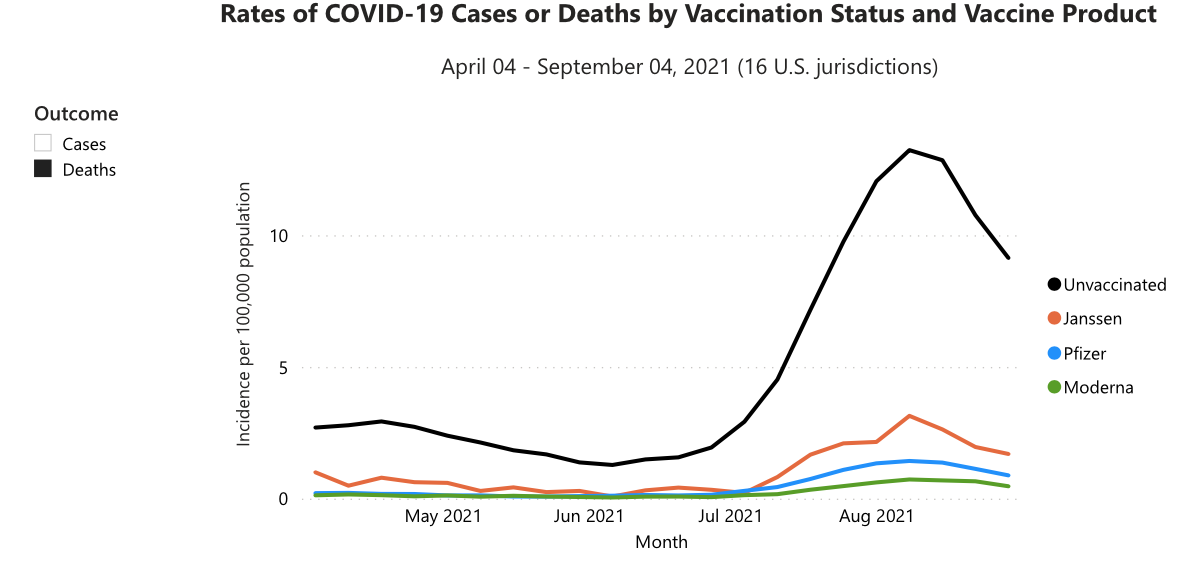If you’ve been vaccinated against COVID-19, says a new Centers for Disease Control and Prevention study, you’re doubly protected. Not only are you less likely than the unvaccinated to die from the virus, but you’re also less likely to die from any non-COVID illness in the months following your vaccination.
Researchers studied 11 million people, among them 6.4 million vaccinated against COVID-19 and 4.6 million who had received flu shots in recent years but not a COVID-19 vaccination. The CDC and seven healthcare groups in seven states reviewed the data compiled between December 2020 and July 2021.
Here are the lower rates of non-COVID death among the vaccinated in the months after becoming fully vaccinated, with adjustments for age, race, ethnicity, sex and geographic location:
- Two doses of Pfizer-BioNTech: 34 percent as likely to die as the unvaccinated.
- Two doses of Moderna: 31 percent as likely to die.
- Single dose of Johnson & Johnson: 54 percent as likely to die.
“There is no increased risk for mortality among COVID-19 vaccine recipients,” the researchers wrote.
The CDC previously published a more specific representation of cases and death by vaccination and type of vaccine:

The observational study invites further interpretation of the results. Are the vaccinated more likely to be healthier than the vaccinated? And could risk factors, whether existing health conditions or risk behaviors, explain the difference in mortality rates among recipients of mRNA vaccines (Pfizer-BioNTech and Moderna) and the Johnson & Johnson vaccine?
But the results reinforce what health experts have been saying for months.
“The vaccine remains the best protection we have in terms of reducing mortality and hospitalization,” says Dr. Ajay Kumar, Hartford HealthCare’s Chief Clinical Officer.